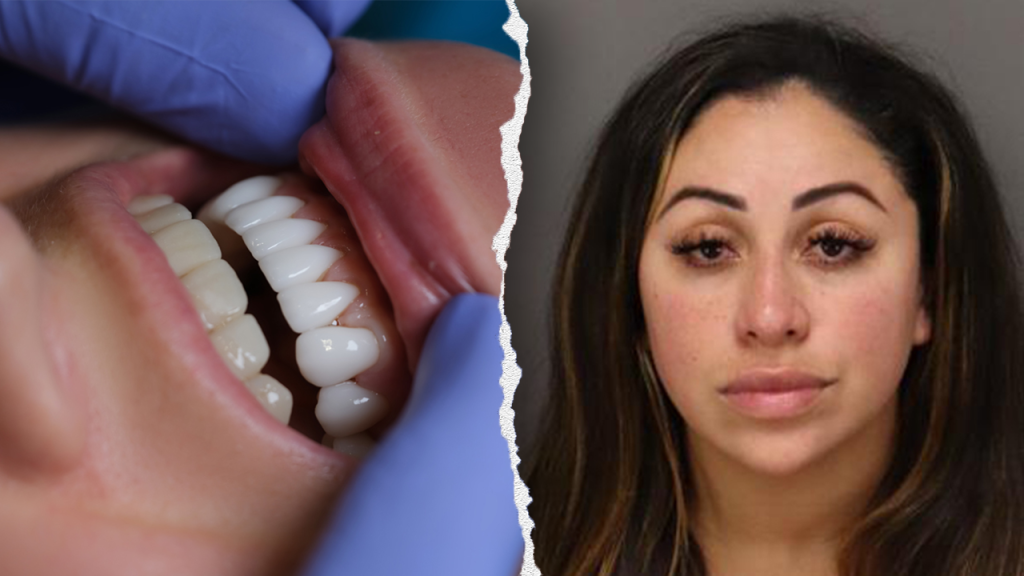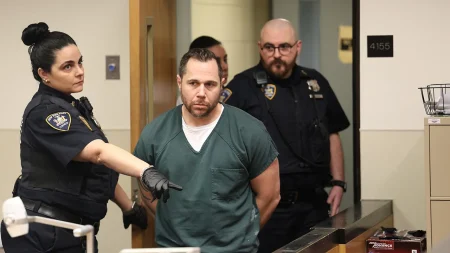Unlicensed “Veneer Technician” Leaves Trail of Dental Damage in Florida
A troubling case of fraudulent dental practice has emerged in Florida, where 35-year-old Emely Martinez now faces multiple charges after allegedly performing unlicensed dental procedures across several counties. Operating out of Tapp Inn Beauty Bar in Pinellas Park, Martinez marketed herself as a “veneer technician” offering dramatically discounted full-mouth veneer treatments. However, authorities claim she had no dental license or formal education, resulting in patients suffering infections and damaged teeth that required expensive professional intervention to repair. The case highlights the growing concern about unlicensed dental practitioners and the severe health consequences their work can cause.
The details of Martinez’s alleged practices are particularly alarming. According to investigators, she used cyanoacrylate—commonly known as “crazy glue” or “superglue”—to attach fake veneers to patients’ teeth. This dangerous practice led multiple victims to report her after experiencing significant pain, infections, and complications following their procedures. Pinellas Park Police Department Sergeant Windy Vater explained the financial burden placed on victims, noting, “They actually have had to pay thousands of dollars to get their teeth fixed, and some of them had to wait for the infection to clear and go get their teeth fixed.” While legitimate dental veneers typically cost upwards of $1,000 per tooth when installed by licensed professionals, Martinez reportedly charged approximately $3,000 for a complete set, falsely promising they would last five to seven years.
The scope of Martinez’s alleged illegal practice appears extensive. Beyond installing dangerous fake veneers, police investigators told Fox 13 that she may have also performed tooth extractions and dental work on children—procedures that carry significant risk even when performed by trained professionals. This case isn’t Martinez’s first encounter with law enforcement over unlicensed dental work; records show she was previously arrested in Hillsborough County on similar charges earlier this year. Authorities believe she may have attempted to evade detection by changing her name and establishing multiple business fronts to continue her fraudulent operations, suggesting a deliberate pattern of deception rather than isolated incidents.
This case emerges against a backdrop of increasing concern about unlicensed dental practitioners nationwide. The American Dental Association issued a specific warning in 2024 about the dangers posed by unlicensed veneer technicians, emphasizing that their procedures have the potential to cause “irreversible harm” to patients. Unlike legitimate cosmetic dental treatments, which are performed by dentists with years of specialized education and training, procedures performed by unlicensed individuals lack proper sanitation protocols, medical oversight, and anatomical knowledge necessary to ensure patient safety. The discounted prices offered by such practitioners often serve as the initial attraction for unsuspecting patients who may not realize the substantial risks involved.
The human cost of these fraudulent dental practices extends beyond physical pain and infection. Victims face emotional distress from damaged appearance, financial hardship from paying for both the fraudulent procedure and subsequent corrective treatments, and potential long-term dental issues that may never be fully resolved. Many victims report feeling embarrassed about being deceived, which sometimes delays their seeking legitimate medical help—potentially allowing infections to worsen. The psychological impact of such experiences can create lasting dental anxiety and mistrust of healthcare providers generally, causing some people to avoid necessary dental care in the future.
For consumers, this case serves as a critical reminder about the importance of verifying credentials before undergoing any medical or dental procedure. Legitimate dental professionals must complete extensive education, pass rigorous licensing examinations, and maintain their credentials through continuing education. Patients can verify a dentist’s licensure through state dental boards, which maintain public records of all licensed practitioners. While the allure of significantly discounted cosmetic dental procedures may be tempting, particularly for those without dental insurance, the potential health consequences and eventual financial costs of unlicensed work far outweigh any initial savings. As Martinez’s case proceeds through the legal system, it highlights the essential role of professional regulation in protecting public health and safety in all aspects of healthcare.











